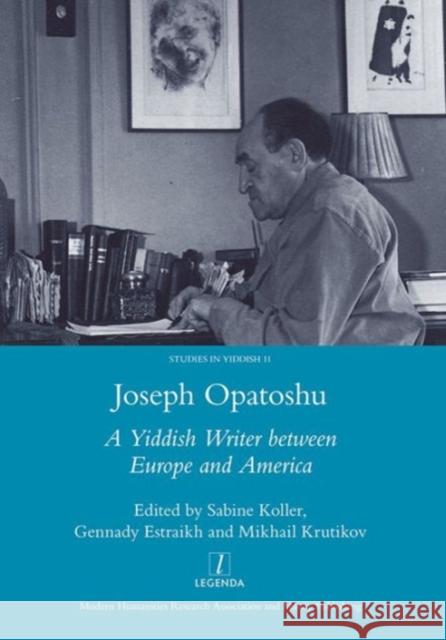Joseph Opatoshu: A Yiddish Writer Between Europe and America » książka
Joseph Opatoshu: A Yiddish Writer Between Europe and America
ISBN-13: 9781907975608 / Angielski / Twarda / 2013 / 282 str.
At the turn of the twentieth century East European Jews underwent a radical cultural transformation, which turned a traditional religious community into a modern nation, struggling to find its place in the world. An important figure in this 'Jewish Renaissance' was the American-Yiddish writer and activist Joseph Opatoshu (1886-1954). Born into a Hassidic family, he spent his early childhood in a forest in Central Poland, was educated in Russia and studied engineering in France and America. In New York, where he emigrated in 1907, he joined the revitalizing modernist group Di yunge -- The Young. His early novels painted a vivid picture of social turmoil and inner psychological conflict, using modernist devices of multiple voices and mixed linguistic idioms. He acquired international fame by his historical novels about the Polish uprising of 1863 and the expulsion of Jews from Regensburg in 1519. Though he was translated into several languages, Yiddish writing always fostered his ideas and ideals of Jewish identity.
Although he occupied a key position in the transnational Jewish culture during his lifetime, Opatoshu has until recently been neglected by scholars. This volume brings together literary specialists and historians working in Jewish and Slavic Studies, who analyse Opatoshu's quest for modern Jewish identity from different perspectives.
The contributors are Shlomo Berger (Amsterdam), Marc Caplan (Baltimore, MD), Gennady Estraikh (New York), Roland Gruschka (Heidelberg), Ellie Kellman (Boston), Sabine Koller (Regensburg), Mikhail Krutikov (Ann Arbor, MI), Joshua Lambert (Amherst, MA), Harriet Murav (Urbana-Champaign, IL), Avrom Novershtern (Jerusalem), Dan Opatoshu (Los Angeles), Eugenia Prokop-Janiec (Krakow), Jan Schwarz (Lund), Astrid Starck (Basel/Mulhouse), Karolina Szymaniak (Krakow) and Evita Wiecki (Munich).











